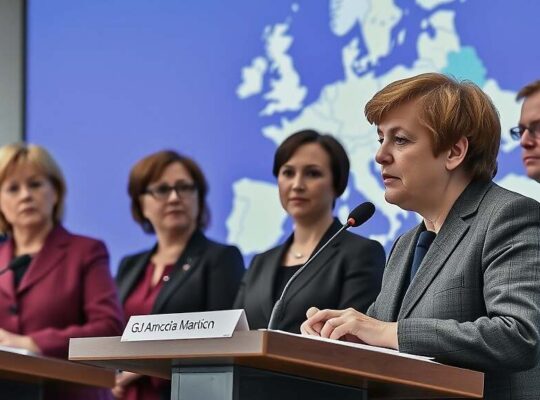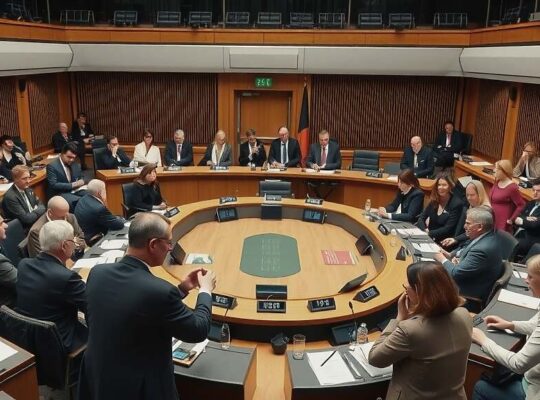The call for Friedrich Merz, leader of the Christian Democratic Union (CDU), to formally join the party’s Senior Citizens’ Union has ignited a subtle but revealing debate within the CDU, highlighting generational dynamics and the evolving strategies for appealing to older voters. As Merz marks his 70th birthday, Hubert Hüppe, the national chairman of the Senior Citizens’ Union, publicly encouraged the CDU leader to become a member, emphasizing that while age alone warrants a welcome, formal membership requires active choice and financial contribution.
This seemingly innocuous invitation underscores a strategically calibrated message. While the Senior Citizens’ Union has consistently championed the interests of older generations, the explicit encouragement for Merz’s participation signifies a desire to visibly cultivate an image of inclusivity and recognition of senior voices within the party’s leadership. The call, published in the “Rheinische Post”, speaks to a broader effort to solidify the CDU’s standing among a demographic crucial for electoral success.
Hüppe’s assertion that “life experience is an important compass for good policy” subtly implies a contrast with potential political approaches perceived as lacking perspective or informed by younger, less experienced voices. This framing, while complimentary to Merz, implicitly underscores a perceived value gap – a reminder that the accumulated wisdom of older generations remains vital for responsible governance.
The statement also carries a faint critique. By highlighting the requirement for active membership – demanding a financial contribution, rather than simply extending a welcoming gesture – the Senior Citizens’ Union subtly nudges Merz toward a more demonstrative commitment. This could be interpreted as a gentle prod to actively engage with the specific concerns of older voters, beyond mere symbolic gestures.
The Senior Citizens’ Union’s declaration of feeling “well-placed under his chancellorship” and its promise to advocate for their interests at the upcoming party conference suggests a potentially assertive lobbying position. This signals a clear intention to ensure senior concerns remain prominent in CDU policy discussions, potentially influencing decisions on pensions, healthcare and social welfare – issues particularly resonant with older voters.












